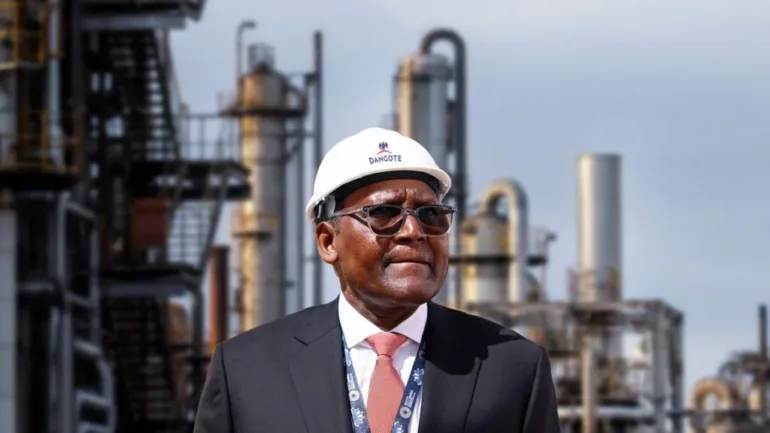Billionaire industrialist Aliko Dangote has submitted an application to develop a deep seaport along Nigeria’s Atlantic coast, aiming to expand the logistics and export capacity of his growing industrial empire.
The proposed Atlantic Seaport, to be located in Olokola, Ogun State, would sit roughly 100 kilometres (62 miles) by road from Dangote’s sprawling fertiliser and petrochemical complex in Lagos. Currently, exports of urea and fertiliser are managed through an on-site jetty, which also serves as a receiving hub for heavy equipment.
According to a Bloomberg report on Monday, the new port would link Dangote’s industrial operations more efficiently to international markets and compete directly with existing ports in Lagos, including the Chinese-funded Lekki Deep Sea Port, which opened in 2023.
“We plan to build the biggest, deepest port in Nigeria,” said Devakumar Edwin, Vice President of Dangote Industries Limited, in an interview cited by Bloomberg.
The port project is expected to support Dangote’s growing ambitions in the liquefied natural gas (LNG) sector. The billionaire plans to export LNG from Lagos, which would require the construction of pipelines from Nigeria’s gas-rich Niger Delta to the coast.
“We want to do a major project to bring in more gas than what NLNG is doing today,” Edwin said, referring to Nigeria LNG Ltd., the country’s current leading LNG exporter—a joint venture involving the government, Shell Plc, Eni SpA, and TotalEnergies SE.
Dangote already sources gas from the Niger Delta for his fertiliser plant, where it is used to produce hydrogen for ammonia—an essential component in fertiliser production.
The Olokola port also marks a return to a site where Dangote once intended to build his refinery and fertiliser complex before abandoning the plan due to regulatory hurdles. Those issues have since been resolved under the current Ogun State administration.
Valued at $27.8 billion, according to the Bloomberg Billionaires Index, Dangote is Africa’s richest man and also owns cement, sugar, and packaged food manufacturing operations across the continent.
He recently announced plans to begin fuel distribution in Nigeria from August, using a fleet of 4,000 gas-powered trucks. The move has sparked criticism from some industry players, who accuse him of trying to monopolize the oil and gas sector—allegations Dangote has denied.
“It’s not that we want to do everything ourselves,” Dangote said. “But I believe doing this will encourage other entrepreneurs to come into the space.”


